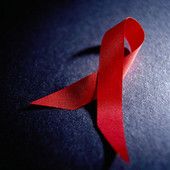Weaning Doesn't Improve HIV-Free Survival for Infants
Studies seeking an optimal approach to preventing HIV transmission between HIV-infected breast-feeding mothers and their newborn babies found that stopping breast-feeding early (at 4 months) ultimately did not reduce HIV-free survival in infants; however, giving extended preventative therapy demonstrated a short-term positive impact. The studies were published online June 4 in the New England Journal of Medicine.

WEDNESDAY, June 4 (HealthDay News) -- Studies seeking an optimal approach to preventing HIV transmission between HIV-infected breast-feeding mothers and their newborn babies found that stopping breast-feeding early (at 4 months) ultimately did not reduce HIV-free survival in infants; however, giving extended preventative therapy demonstrated a short-term positive impact. The studies were published online June 4 in the New England Journal of Medicine.
In the first study, Louise Kuhn, Ph.D., of the Mailman School of Public Health at Columbia University in New York City, and colleagues evaluated whether 958 HIV-infected women and their infants in Zambia fared better when the infants were abruptly weaned at 4 months of age, compared with those who continued breast-feeding for longer periods (median of 16 months). The researchers found that stopping breast-feeding early in low-resource countries like Zambia does not improve HIV-free survival among children whose mothers are infected with HIV and has detrimental effects on the children, but also noted that compliance was poor.
Separately, Newton Kumwenda, Ph.D., of the Bloomberg School of Public Health at Johns Hopkins University in Baltimore, and colleagues studied 3,016 infants born to women infected with HIV-1 who were breast-feeding. Beginning at birth, the infants randomly participated in one of three anti-HIV treatment regimens: single-dose nevirapine and one week of zidovudine (the control group); the control group regimen combined with extended daily doses of nevirapine; or the control regimen plus daily doses of nevirapine and zidovudine extended for 14 weeks. The two extended treatment regimens (nevirapine alone or combined with zidovudine) were 40 percent to 50 percent better at preventing HIV transmission at 9 months than the one-week standard regimen.
These studies "offer important insight into research and policy development aimed at preventing mother-to-child transmission of HIV in resource-constrained settings," Glenda Gray and Haroon Saloojee, both of the University of Witwatersrand in Johannesburg, South Africa, write in an accompanying editorial.
Gray reports financial relationships with several pharmaceutical companies.
Abstract - KuhnFull TextAbstract - KumwendaFull TextEditorial
Copyright © 2008 ScoutNews, LLC. All rights reserved.